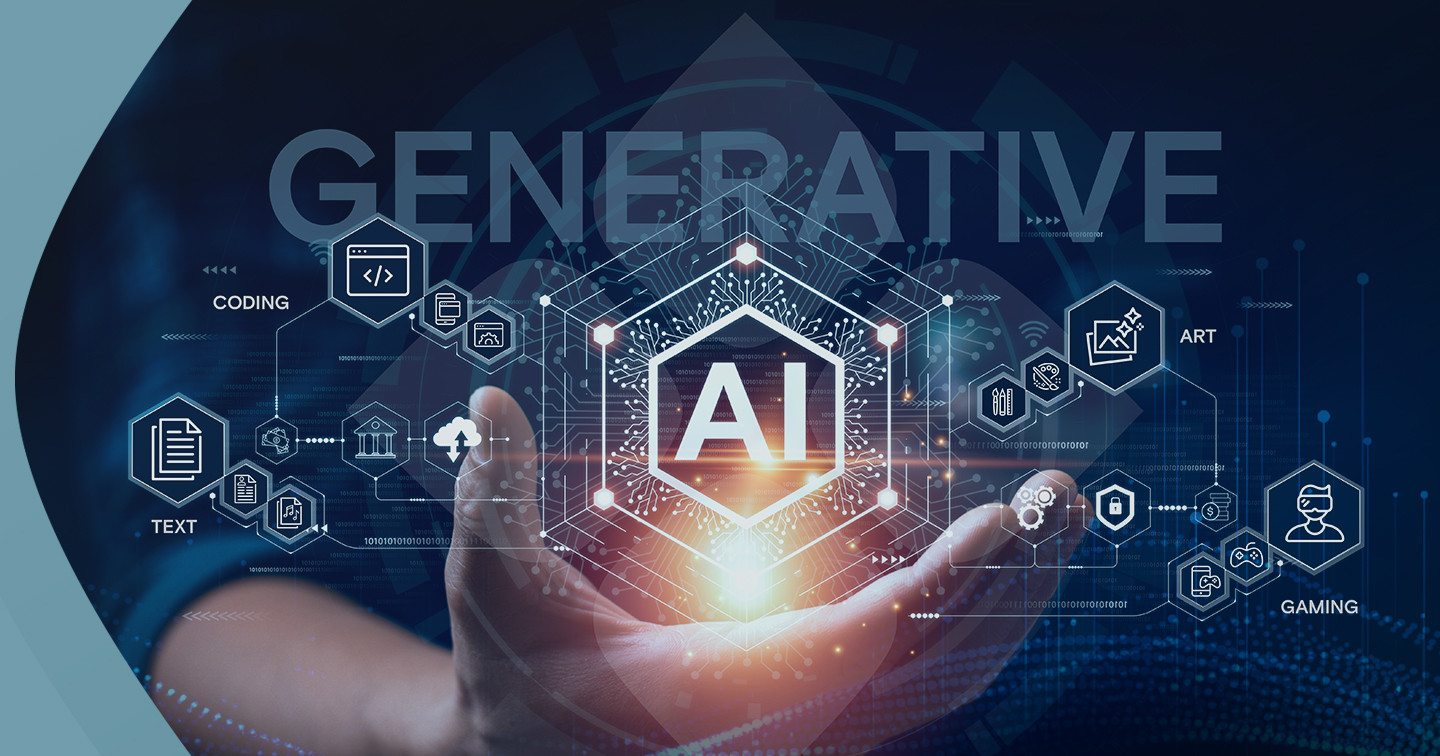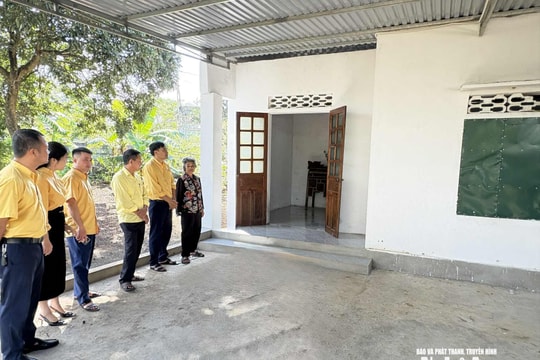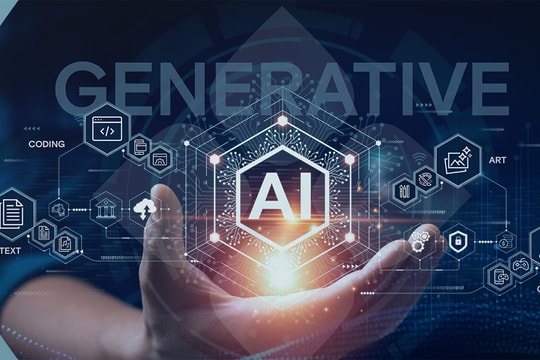Why is Japan lagging behind in artificial intelligence?
(Baonghean.vn) - Japan is known as a country with the most developed science and technology in the world. However, in the field of artificial intelligence (AI), this country is lagging behind many other countries.
AI has become the hottest topic in the technology field since the US company OpenAI created a new wave with the birth of chatbot ChatGPT in November last year. Since then, countries around the world are racing to develop their own generative artificial intelligence algorithms like ChatGPT in order not to fall behind in the race to develop this new technology.
According to research by the US multinational bank Goldman Sachs, breakthroughs in artificial intelligence have the potential to boost global GDP by 7%, equivalent to nearly 7 trillion USD in the next decade.
Meanwhile, Japan is considered a country of many future technologies. But the country is lagging behind in the AI race and is trying to create its own large language models.
Key to the development of generative AI are large language models (LLMs) that underpin applications like ChatGPT, which process huge datasets to generate text and other content. Japan is currently behind the US, China and the EU in developing these algorithms, said Noriyuki Kojima, co-founder of Japanese large language model startup Kotoba Technology.
Chinese tech giants including Alibaba and Tencent have launched at least 79 major language models in the country in the past three years, according to Reuters. Meanwhile, in the US, tech giants such as Microsoft, Google and Meta have played a key role in driving the country’s major language model advancements.

Japan is falling behind in artificial intelligence.
Generative Artificial Intelligence (Generative AI) is a branch of artificial intelligence that describes a class of algorithms that are capable of generating new content including text, images, video, and audio. Generative AI is developed from advances in deep learning technology to produce results similar to those generated by humans. ChatGPT is the latest development in the world of generative AI.
Although large language models are considered the foundation for the development of generative AI, Japan is currently lagging behind countries and regions such as the US, China and Europe in terms of the scale and speed of developing large language models.
In this regard, the co-founder of Kotoba Technology added that Japan's lagging behind in the field of creative AI is largely due to a shortage of human resources for widespread research and development of deep learning technology and software development. Deep learning requires a strong software engineering community to develop the necessary infrastructure and applications.
Meanwhile, according to Japan's Ministry of Economy, Trade and Industry, the country will face a shortage of 789,000 software engineers by 2030. The country is currently ranked 28th out of 63 countries in terms of technological knowledge, according to the 2022 World Digital Competitiveness Index of the International Institute for Management Development (IMD), based in Switzerland.
Japan also faces hardware challenges, as large language models need to be trained on AI supercomputers like IBM’s Vela and systems hosted on Microsoft’s Azure. But no private company in Japan has its own “world-class machine” with such capabilities, Nikkei Asia reported.
In this regard, Mr. Kojima argues that government-controlled supercomputers like Fugaku “hold the key” to Japan’s pursuit of large-scale language models. Access to such large-scale supercomputers forms the backbone of the development of large-scale language models, as it has traditionally been the most important bottleneck in the process.
How can supercomputers help Japan develop large language models?
According to technology group Fujitsu, Tokyo Institute of Technology and Tohoku University plan to use the Fugaku supercomputer to develop large language models based mainly on Japanese data in cooperation with supercomputer developers Fujitsu and Riken.
The organizations plan to publish their research results in 2024 to help other Japanese researchers and engineers develop large language models, Fujitsu added.
The Japanese government will also invest 6.8 billion yen (about $48.2 million), with about half of the total going to developing a new supercomputer in Hokkaido Prefecture, which is expected to start operating early next year. The supercomputer will specialize in training large language models to boost Japan's development of generative AI, according to Japan's Nikkei Asia newspaper.
In April, Japanese Prime Minister Fumio Kishida said the country supports the use of generative AI technology in industry. Meanwhile, OpenAI - the "father" of ChatGPT - is also planning to open an office in Japan.
Japanese companies are pursuing the development of bio-inspired AI.
Japan’s tech giants have also joined the race to improve Japan’s position in artificial intelligence. In June, SoftBank said it plans to develop its own generative AI platform, underscoring SoftBank CEO Masayoshi Son’s announcement that the company plans to shift from “defense mode” to “offense mode” and increase its focus on AI.
“We want to be at the forefront of the AI revolution,” Masayoshi Son stressed at the annual shareholders’ meeting.
SoftBank sold 85% of its stake in SB Energy to Toyota Tsusho in April and recently agreed to sell 90% of its stake to US investment manager Fortress Investment Group, Nikkei Asia reported. Cutting back on these other investments frees up cash, allowing SoftBank to focus largely on AI through its Vision Fund venture capital unit.
SoftBank-owned chip designer Arm is also preparing to pursue an initial public offering (IPO) in the US later this year. “It would be the biggest IPO in the world by far,” said Amir Anvarzadeh, Japan equity strategist at Asymmetric Advisors.
The IPO would provide a huge boost to SoftBank, which reported a record 4.3 trillion yen (about $30 billion) loss at its Vision Fund for the fiscal year ended March 31.
Chip designer Arm was initially looking to raise between $8 billion and $10 billion. But with demand for semiconductors “skyrocketing,” strategist Anvarzadeh suggested Arm could raise between $50 billion and $60 billion, or “85% of SoftBank’s market cap.”
SoftBank’s stock price is likely to rise, although that does not guarantee the success of its AI efforts, Mr. Anvarzadeh added. Ultimately, SoftBank will hardly change the landscape of Japan, and the company is not the savior of Japan’s AI.
Alongside SoftBank, Japanese telecoms giant NTT has also announced plans to develop its own large language models this fiscal year, aiming to create an efficient service for corporations. NTT said it will invest 8 trillion yen (about $55.5 billion) over the next five years in growth areas such as data centers and AI, up 50% from its previous investment.
Local media reported that digital advertising company CyberAgent released a major language model in May that allows companies to create AI chatbots. The company said it was one of the few “models dedicated to Japanese language and culture.”
While Japan has yet to catch up with other countries in the field of artificial intelligence, private sector efforts are making headway. Kojima said that once a “robust infrastructure” is established, the remaining technical challenges could be “significantly reduced” by using data and open-source software from previous pioneers. Bloom, Falcon, and RedPajama are all open-source large language models trained on massive amounts of data that can be downloaded and studied.
However, companies venturing into this space should expect competition to last for a “relatively longer period of time,” said Mr. Kojima, explaining that developing large language models requires significant capital investment and a workforce skilled in natural language processing and high-performance computing.
AI Regulations in Japan
The growing involvement of Japanese tech companies in the development of generative AI coincides with a positive view of AI adoption in other areas. According to survey data from Teikoku Databank (Japan), more than 60% of companies in Japan have a positive attitude towards using generative AI in their operations, while 9.1% have already done so.
Technology group Hitachi has established a generative AI center to promote the safe and effective use of the technology by employees. The group said that with the expertise of data scientists, AI researchers and related experts, the center will develop guidelines to minimize risks caused by generative AI.
Japan will even consider government adoption of AI technology like ChatGPT, provided cybersecurity and privacy issues are addressed, Chief Cabinet Secretary Hirokazu Matsuno said.
Meanwhile, as Japan becomes more open to the use of artificial intelligence, the government should develop and facilitate soft guidelines regarding its use, while assessing the need for tough regulations based on specific risks, said Hiroki Habuka, a research professor at Kyoto University.
“Without clearer guidance on what actions companies should take when using generative AI, implementation activities could become fragmented,” added Professor Hiroki Habuka.








